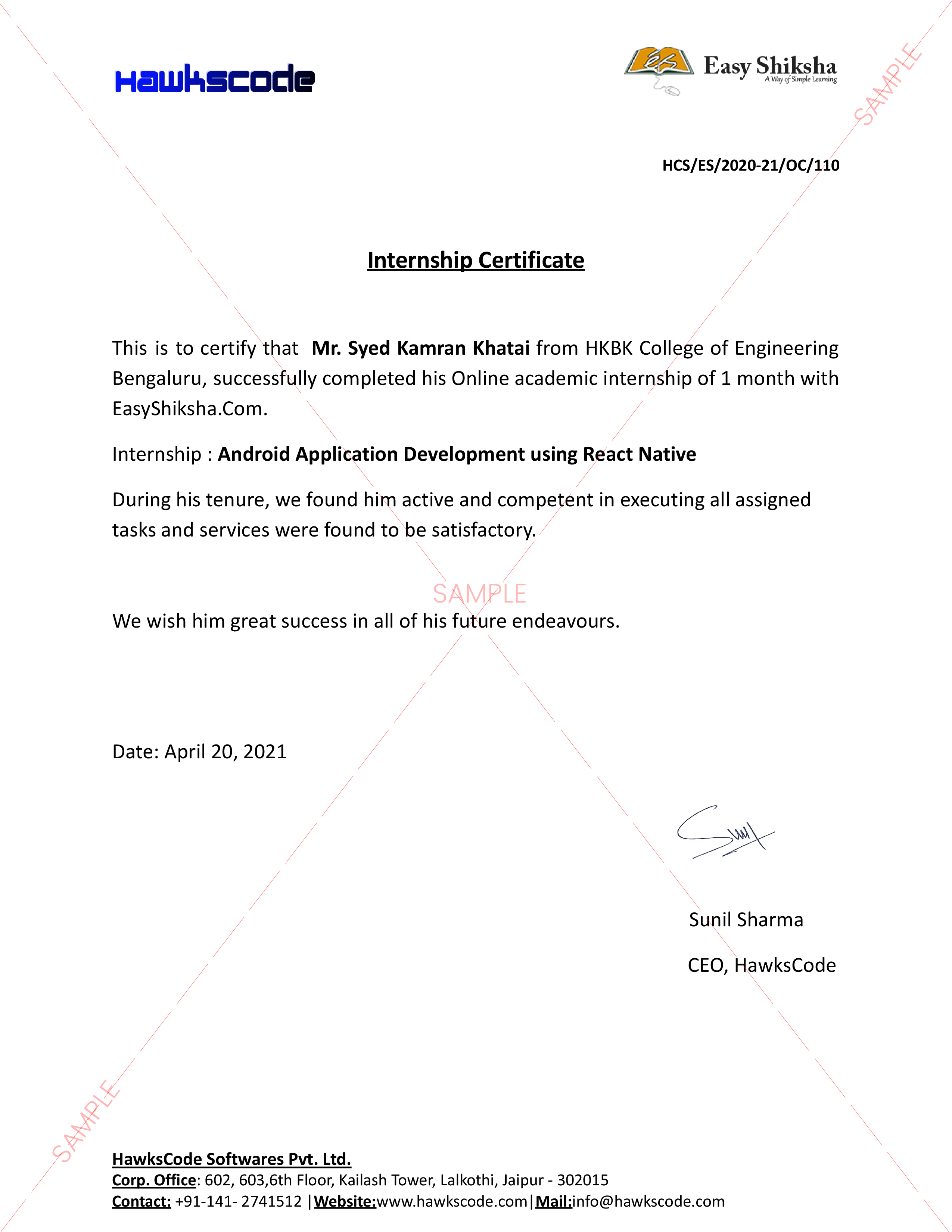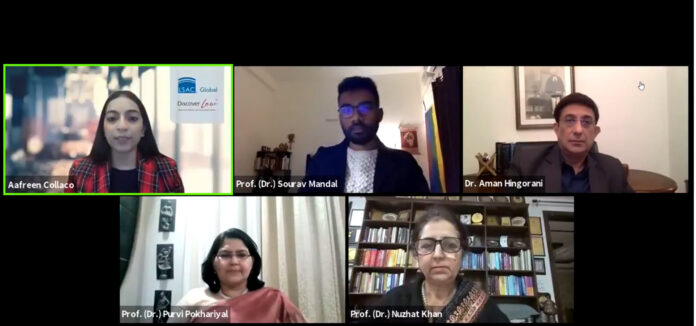New Delhi, November 30, 2021: In order to recognize Constitution Day in India on 26 November 2021, LSAC Global recently hosted a webinar featuring leaders from the Indian legal fraternity in which they offered valuable perspectives on “Constitutionalism: Idealism vs. Realism”. The conversation revolved around decoding the meaning of Constitutionalism and how the Indian Constitution is related to current issues being faced in India.
~LSAC Global organizes a webinar on Constitutionalism: Idealism vs. Realism~
A key focus of the webinar was to drive the message that constitutionalism is not something that can be implemented, but something which should be adhered to as a collective effort by the citizens of the country.

Important Announcement – EasyShiksha has now started Online Internship Program “Ab India Sikhega Ghar Se”

Decoding the meaning and the need for the Constitution, Dr. Aman Hingorani, Advocate-on-Record, Supreme Court of India said, “The purpose of constitutionalism is to balance the rights and freedom of people. In any free country, the constitution must evolve. As a society, we need government, and the government is comprised of people. But human beings being vested with authority must be restrained by something more potent than the notion of fair play and discretion”.
Speaking about constitutionalism in the context of criminal law, Prof. (Dr.) Purvi Pokhariyal, Dean, National Forensic Sciences University said, “Constitutionalism talks about the doctrine of limited government. It is high time that we need to constitutionalize our criminal laws. There are a lot of issues with the existing framework of many criminal laws and we need to carefully revisit the constitution principles.”
Talking about the importance of teaching constitutionalism to law students, Prof. (Dr.) Nuzhat Parveen Khan, Dean, School of Law, Bennett University said, “The Constitution seeks to establish the apex origins of the government and administration and describes the structure, composition, powers, and functions of one organ with another. Students studying the Constitution and its relevance learn the basic understanding of governance and the principles of the working of the Constitution. The impact and influence are entrenched deep within the philosophy of the Constitution. The Constitution of any country is a living document and the outlook and expression which are perceived and expressed by the interpreters of the constitution must be dynamic and keep pace with the changing times.”
Introducing the gender aspect with regards to making of the Indian Constitution, Prof. (Dr.) Sourav Mandal, Associate Professor, Jindal Global Law School said, “We often ignore the contributions of those 15 women members of the constituent assembly who were part of the making of the Constitution and have contributed immensely. It is very important to understand history. If we look at the dominant writings which are being taught in law schools, we have been a product of that upbringing.”
While discussing the contribution of women in the making of the constitution, the speakers also opined on the importance for women to continue and grow their presence in law and the law-making process. The webinar also revolved around how since the adoption of the Constitution of India, the concepts have undergone a transformation.
Top Courses in Software Engineering
More Courses With Certification
LSAC Global conducts webinars every month aimed at helping parents and students understand the various career opportunities for law aspirants and how the legal profession has evolved over time. Participants of these LSAC Global webinars include top Indian and international legal education leaders who offer valuable perspectives on the legal education landscape. The first webinar – ‘The Changing Landscape of Legal Profession: Law Re-defined’ was very successful, as distinguished leaders in the law and legal education community shared their insights and perspectives of the legal profession and the legal landscape with the audience. Registrants who attend the complete webinar are also provided with the certificate of participation.
About LSAT—India
LSAT—India is a standardized test adopted as an admission criterion by multiple law colleges across India. It measures skills that are considered essential for success in law school. LSAT—India is specially created for admission to law schools in India by the Law School Admission Council, USA (LSAC). The LSAC has been helping law schools in various countries evaluate the critical thinking skills of their applicants for more than 70 years.
For information related to technology,visit: HawksCode and EasyShiksha
Empower your team. Lead the industry
Get a subscription to a library of online courses and digital learning tools for your organization with EasyShiksha
Request NowALSO READ: Schoolnet-and-kendriya-vidyalaya-sangathan-join-hands-to-enhance
Get Course: Web-Development-with-PHP-MySQL-Database
















































































